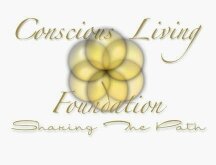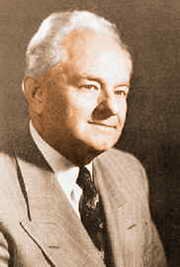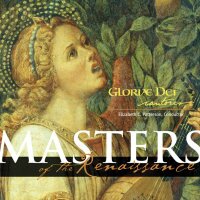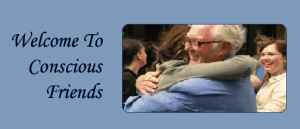|
||

- Issue 100 -

- Issue 100 -
Published by The Conscious Living Foundation
E-mail:
Home Free Downloads Quotations Products Free E-Books
|
Welcome to Conscious Living, our newsletter designed to share our current activities and growth, along with articles and information that we hope will be supportive and encouraging in your efforts to live each moment with more joy and satisfaction.
We are pleased to offer, for your entertainment and inspiration, a new kind of subject matter for our newsletter. Beginning with this issue, we are offering an entire spiritual novel - chapter by chapter, in serial form. Each consecutive issue of our newsletter will contain the next chapter in the book. In fact, we liked the idea so much, we're offering two separate novels simultaneously. First, we are excited to present "The Third Eye" by T. Lobsang Rampa, a fascinating, controversial and very popular account of the life and esoteric experiences of a Tibetian Monk. Topics discussed include reincarnation, clairvoyance, yetis and the unknown early history of the earth. In addition, we are offering "A Romance of Two Worlds" by Marie Corelli. This best selling Victorian novel explores the relationship between the occult and Christianity, plus a discussion of guardian angels and life after death along with mystery, romance and tragedy. The writing is beautiful and majestic and truly appealing to the inner soul. We look forward to your comments about both novels. On a practical level, we have responded to your requests for a simpler method of payment when making purchases from our product catalog. We are now able to take telephone orders for those who do not want to order through the website (just call 818/502-9096). In addition, we can now accept all major credit and debit cards directly through our website without the necessity of paying through PayPal. Making purchases is now simpler and quicker! We continue with our collection of essays by Ernest Holmes, with his thoughts on "Hold To The Good". As always, Dr. Holmes' thoughts are empowering and encouraging. Also, we're presenting an article by William Walker Atkinson entitled, "Mind Building". In this issue we're focusing more deeply on the 12 Step Programs and their ability to support personal and spiritual transformation. We're pleased to offer two articles for your consideration: First, "Understanding The Serenity Prayer"; most of us have heard and perhaps know the prayer. However, this article, with great wisdom and compassion, looks below the surface and explores the deeper guidance and inspiration embedded within the prayer. Secondly, an explanation of the 11th step ("Through prayer and meditation to improve our conscious contact with God") by Bill Wilson, one of the founders of AA. - This is a surprising and revealing essay that will give you a new perspective not only on the 11th step, but all the steps - set in a historical context that offers real insight. In addition to an affirmation for recognizing your identity with Spirit, you'll also find a new spiritual poem in our newsletter, this one entitled, "God Bound". The biggest news we have to share in this issue, is the completion of our first product in Chinese. In addition to offering The Conscious Word in Spanish, we now offer Conscious Wisdom in Chinese. With these two daily email products we hope to reach an ever larger portion of the world population who are hungry for spiritual support but could not find it in their native tongue. As usual, our newsletter also includes an article by one of our most thought-provoking writers, Steve Roberts and his new essay, "Celebrating Ignorance". You'll have to read the article to know more... Finally, starting with the next issue, we want to add a new recurring "Letter To the Editor" section to our newsletter. So, now is the chance for you to share your thoughts, ideas, experiences, questions and opinions with us and the rest of our readers. Just send an email to me at . You'll probably find it in our next issue. As always, we are so grateful to all of you who visit our website, and contribute through your generous donations, purchases, emails and article submissions. Thank you for letting us share this issue of our newsletter with you. William Simpson |
|
| Serial: The Third Eye by T. Lobsang Rampa | |
|
|
Please be assured that your email address will not be sold, rented |

UNITY All Manifestation of Life is from and invisible to a visible plane; and it is a silent, effortless process of spiritual realization. We must unify, in our own mentalities, with Pure Spirit. To each of us, individually, God, or Spirit, is the Supreme Personality of the Universe; the Supreme Personality of that which we, ourselves, are. It is only as the relationship of the individual to this Deity becomes enlarged that he has a consciousness of power. There should always be a recognition in treatment of the Absolute Unity of God and man; the Oneness, Inseparability, Indivisibility, Changelessness; God as the Big Circle, and man as the little circle. Man is in God and God is in man; just as a drop of water is in the ocean, while the ocean is in the drop of water. This is the recognition Jesus had when He said: "I and my Father are One." There is a Perfect Union; and to the degree that we are conscious of this Union we incorporate this consciousness in our word, and our word has just as much power as we put in it, no more and no less. Within this Infinite Mind each individual exists, not as a separated, but as a separate, entity. We are a point in Universal Consciousness, which is God, and God is our Life, Spirit, Mind and Intelligence. We are not separated from Life, neither is It separated from us; but we are separate entities in It, Individualized Centers of God's Consciousness. We came from Life and are in Life, so we are One with Life; and we know that Instinctive Life within, which has brought us to the point of self-recognition, still knows in us the reason for all things, the purpose underlying all things; and we know that there is nothing in us of fear, doubt or confusion which can hinder the flow of Reality to the point of our recognition. We are guided, daily, by Divine Intelligence into paths of peace wherein the soul recognizes its Source and meets It in joyful Union, in complete At-one-ment. HOLD TO THE GOOD Such is the power of clear thought that it penetrates things; it removes obstructions, the reason being that there is nothing but consciousness, nothing but Mind. The only instrument of Mind is idea. See with perfect clearness and never become discouraged nor overcome by a sense of limitation. Know this:—that the Truth with which you are dealing is absolute. All of God, all of Truth, all there is, is at the point of man's recognition; and every time you give a treatment, and all the way through it, keep bringing this back to your remembrance. Never struggle; say, "There is nothing to struggle over; everything is mine by Divine Right; Infinite Intelligence is my Intelligence; Divine Love is my Love; Limitless Freedom is my Freedom; Perfect Joy is my Gladness; Limitless Life is my Energy." Let us BLIND OURSELVES TO NEGATION, as far as we are mentally able to. LET US NOT TALK, THINK, OR READ ABOUT ANYTHING DESTRUCTIVE, whether it be war, pestilence, famine, poverty, sickness, or limitation of any kind. Looking at this from a practical standpoint, there is all to win and nothing to lose. The rapid progress we would make if we should do this would be wonderful. We are always dealing with First Cause. Nothing else can equal the satisfaction that comes to one when he perceives himself, from the silence of his own soul and the activity of his own thought, actually bringing about a condition without the aid of visible instrumentalities. There is nothing else as satisfying as to heal some disease purely by the power of thought; this shows that we are dealing with First Cause. We must definitely neutralize confusion and doubt. We should take time, daily, to conceive of ourselves as being tranquil, poised, powerful,—always in control of every situation; as being always the highest concept of the Divine which we can imagine. We should never hesitate to think of ourselves in this way. The Ancients used to teach their pupils to say to themselves—"Wonderful, wonderful, wonderful me!"—until they lost sight of themselves as Mary Smith or John Jones, and perceived themselves as Divine Realities. Then, when they came back to the objectivity of Mary Smith and John Jones, they brought with them that subtle power which distinguishes Spiritual Growth,—the Atmosphere of Reality.
THE CHRIST Who is man? He is the Christ. Who is the Christ? The Son, begotten of the only Father;—not the only begotten Son of God. Christ means the Universal Idea of Sonship, of which each is a Member. That is why we are spoken of as Members of that One Body; and why we are told to have that Mind in us "which was also in Christ Jesus." Each partakes of the Christ Nature to the degree that the Christ is revealed through him, and to that degree he becomes the Christ. We should turn to that Living Presence within, Which is the Father in Heaven, recognize It as the One and Only Power in the Universe, unify with It, declare our word to be the presence, power and activity of that One, and speak the word as if we believed it; because the Law is the servant of the Spirit. If we could stand aside and let the One Perfect Life flow through us, we could not help healing people. This is the highest form of healing. We have gone through all of our abstract processes of reasoning and have found out what the Law is and how It works; now we can forget all about It, and know that there is nothing but the Word; the Law will be working automatically. We must forget everything else, and let our word be spoken with a deep inner realization of love, beauty, peace, poise, power, and of the great Presence of Life at the point of our own consciousness. REALIZATION We do not dare to throw ourselves with abandonment into a seeming void; but if we did, we would find our feet planted firmly on a rock, for there is a place in the mentality, in the heights of its greatest realizations, where it throws itself with complete abandonment into the very center of the Universe. There is a point in the supreme moment of realization where the individual merges with the Universe, but not to the loss of his individuality; where a sense of the Oneness of all Life so enters his being that there is no sense of otherness; it is here that the mentality performs seeming miracles, because there is nothing to hinder the Whole from coming through. We can do this only by providing the great mental equivalents of Life, by dwelling and meditating upon the immensity of Life; and yet as vast, as immense, as limitless as It is, the whole of It is brought to the point of our own consciousness. We comprehend the Infinite only to the degree that It expresses Itself through us, becoming to us that which we believe It to be. And so we daily practice in our meditations the realizations of Life:—"Infinite, indwelling Spirit within me, Almighty God within me, Perfect Peace within me, Complete Satisfaction within me, Real Substance within me; that which is the Truth within me." "I am the Truth," Jesus said. He said: "I am the way; I am the Life; no man cometh unto the Father but by Me." How true it is! We cannot come unto the Father Which art in Heaven except through our own nature. Right here, through our own nature, is the gateway and the path that gradually leads to illumination, to realization, to inspiration, to the intuitive perception of everything. The highest faculty in man is intuition, and it comes to a point sometimes where, with no process of reasoning at all, he realizes the Truth intuitively. So we should daily meditate, particularly if we are practicing right along. The Conscious Living Foundation is proud to offer its recording of one of Ernest Holmes most famous books, "Creative Mind and Success". To learn more about the recording and hear several FREE selections on such topics as: - How to attract friends Just click Here. We are also pleased to announce the recent release of "Affirmations of Ernest Holmes" - a collection of 20 of Dr. The affirmations cover a wide range of topics from healing and excellent health, to increased abundance and prosperity, to a greater sense of uni8ty and oneness with Spirit. These affirmations have been practiced by hundreds of thousands of people for decades and have been found to work with great effectiveness. To hear several free samples from this wonderful recording, please click Here. If you enjoy our inspirational stories and articles, be sure to visit our website for more: |
|
Affirmation: (Selection from The Conscious Word Daily Affirmation) |
|
|
News: A New Collection of Bath and Body Products
 The Conscious Living Foundation is pleased to announce a new collection of healthy bar soaps, "SoapOne" - soap products with spirit. Available now at a special introductory price.
The Conscious Living Foundation is pleased to announce a new collection of healthy bar soaps, "SoapOne" - soap products with spirit. Available now at a special introductory price.
SoapOne products are designed with harmony and beauty in mind. One hundred percent vegetable soap with essential oils - the primary ingredients are: Palm Nut Oil, Palm Oil, and Palm Butter. Our new products are circular in shape and come in four unique flavors: Allure, Bloom,  Reflection and Serenade. To find out more, click Here.
Reflection and Serenade. To find out more, click Here.
To see our full line of soaps, body scrubs, hand creams, room sprays and  body creams, please click Here.
body creams, please click Here.
To visit the Bath and Body section of our catalog, which contains a wide variety of Bath Gift Sets, Perfumes, Women's Pajamas, Bathroom Decor Sets, Pillows, Head and Hair products and Cosmetics - please click Here.
Essay: Celebrating Ignorance by Steve Roberts
|
I recall an anecdote about a father who boarded a subway train with his two young sons, ages eight and 10 in my mind’s eye. The boys were especially unruly, racing around, screaming, throwing themselves on the floor and on each other. This annoyed other passengers no end. One of them finally sniffed to the dad, you should learn to control your children; there’s no call for them to bother everyone else. The dad said, yes, I wish I could. The thing is, we are on our way home from the hospital where their mother just died, and neither they nor I know what to do with all the pain we feel. The lesson of history I celebrate most is that everything we know is wrong. Not wrong the opposite of right; but wrong incomplete, short-sighted. In St. Mike’s grammar school we kids were told that to be safe should a Russian nuclear missile hit our playground we needed to hide under our desks. Life, I find, includes one reminder after another that whatever we “know for sure” will, in all likelihood, sooner or later—in this incarnation or another—be reclassified somewhere along the continuum from “not quite the whole story” to “nutty as hell.” Why is this worth celebrating? Because of its ability to deepen our appreciation of that rarest and most valuable of human activities: not taking ourselves seriously. As I write this, there’s a reasonable chance that our next president will be either a woman or an African-American man—which, I have on good authority, has prompted more than a few of us to bet the cookie jar that hell has frozen over. Our ignorance isn’t an absence of mental horsepower, goodness knows. If we put our mind to it we could clone a chicken and a pig and cut the work of making ham & eggs by half. We could also meaningfully reverse global warming; improve our rapport with other cultures to the point of lessening violent conflict; and see to it that no one is financially devastated because of his or her health…to name three of countless opportunities we have the smarts to meet—but not, so far, the collective maturity. And maturity, to me, is measured by the extent to which our actions are rooted in the awareness that our well-being and the well-being of others are one. (A tall order, my own track record suggests.) Remember that sign: “Teenagers: Leave home now while you still know everything”? I feel that’s who we are as a species: relatively immature and so full of ourselves we’re blind to it. Which is really good news when you think about it. It means we’re growing up. Imagine who we’ll be five thousand years from now. In fact, I see our descendants in 7008 being awestruck that we 21st century stewards of spaceship earth managed to survive while holding so many wild beliefs. Such as: there are things more important than kindness; it’s possible to be superior or inferior to another; forces outside myself are responsible for my happiness—and of course no woman in her right mind would be seen in public without her nails done. Celebrating ignorance is not so much about letting go of our convictions as it is about holding them more lightly: giving ourselves a break that, just maybe, believe it or not, astonishing as it may be, there’s more to life than we perceive. The Dalai Lama was once asked what he would do if science proved that his Buddhist beliefs were erroneous. He didn’t say impossible. He didn’t say, why these teachings are eternal verities unassailable by logic. No. Instead, not missing a beat, His Holiness laughed and said, “I’d change my mind.” How easily could we answer the same?
To find out more about Steve, see examples of his stone sculptures or read a chapter from his book, click Here. Steve Roberts is the author of Cool Mind Warm Heart, a collection of essays, stories, and photographs of stone sculptures he builds on his Vermont farm. He can be found on the web at CoolMindWarmHeart.com and at TheHeartOfTheEarth.com. If you enjoy our inspirational stories and articles, be sure to visit our website for more: |
| News: The Conscious Word and Conscious Wisdom are Now Available With A 2 Week FREE Trial |
|
The Conscious Word is an email newsletter sent directly to you each day. Each issue contains an inspirational affirmation designed to help uplift your spirits and support your conscious efforts at personal and spiritual growth and development. By practicing the affirmation which we email to you, for 3 to 4 minutes a day, you create an effective tool that will help you experience an ongoing positive change in your life. We all “know” many things. However, “knowing” something, in and of itself, does not make it “true” to us. We can read all about oranges; we can look at pictures of oranges and we can talk to people who have eaten oranges. But, until we taste the orange ourselves, we do not truly understand the full truth about what an orange is. Likewise, we can experience the “truth”, the real nature, of many more subtle and essential concepts by “tasting” them. One of the capabilities of an affirmation is to provide us with a “taste” of the subject matter of the affirmation. However, something else is also at work in an affirmation. One of the secrets of the universe is that when a human believes something is so, it becomes what he or she believes. Jesus said “Verily I say unto you, if ye have faith and doubt not, ye shall not only do this which is done to the fig tree, but also if ye shall say unto this mountain, `Be thou removed and be thou cast into the sea,' it shall be done. And all things whatsoever ye shall ask in prayer, believing, ye shall receive.” (Book of Matthew verses 21 and 22) The key words in this quote are “If ye have faith and doubt not..” and “all things whatsoever ye shall ask believing..” Jesus is describing this receptivity of the universe to human belief. However, there are requirements for this belief to be effective. Jesus says we must have “faith” without doubt and that we must “believe” as we ask. James Allen’s famous premise “As a man Thinketh, so it is” expresses this same truth. In essence, when we become utterly convinced of the truth of something, which means we have absolutely no doubts about it, the universe will be molded and shaped to match our conviction. The challenging part is to find a way to become convinced of something that is not yet actualized. To cultivate our faith. This is where affirmations can help. By taking a thought or collection of thoughts and impressing them deeply upon the mind with persistence and concentration, a conviction can be cultivated. Developing our own personal convictions, especially about ourselves, and then deepening and persisting in those convictions is a major key to our health, happiness and success in life. For More Information, an example issue and A Two Week Free Trial, Click Here. After your 2 week free trial, our normal subscription rate is $3.50 each month.
In addition, CLF is pleased to announce the introduction of our newest Daily Conscious Wisdom is an email newsletter sent directly to you each day. Each issue contains inspirational guidance and wisdom designed to help uplift your spirits and support your conscious efforts at personal and spiritual growth and development. We're offering a Two Week Free Trial subscription, so that you can experience personally how Conscious Wisdom can help change your life. The regular monthly subscription costs $3.50 each month. For More Information, an example issue and A Two Week Free Trial, Click Here. |
| News: Gift Certificates Now Available - Give the gift of Spiritual Inspiration and Renewal |
 Consider a Gift Certificate from The Conscious Living Foundation. What better gift to give friends and loved ones than the gift of new hope, inspiration, encouragement and upliftment? If you are considering buying a gift, why not let your loved ones select something that can genuinely make a difference in their lives? Consider a Gift Certificate from The Conscious Living Foundation. What better gift to give friends and loved ones than the gift of new hope, inspiration, encouragement and upliftment? If you are considering buying a gift, why not let your loved ones select something that can genuinely make a difference in their lives?
Your Gift Certificate can be printed out for your personal delivery, or it can be emailed directly. Our Gift Certificates are available in denominations from $5.00 to $1,000 and every product in our catalog is available for purchase with our CLF Gift Certificates. Click Here for more information. This time give the gift of a deeper spiritual life and increased personal growth. |
|
|
|
Please be assured that your email address will not be sold, rented
or given to any other organization or individual. We respect your privacy.
| News: New Product Line Added To Our Catalog: Spiritual Classical Music |
 The Conscious Living Foundation is pleased to announce that we have added an entirely new category of music to our product catalog. In addition to our wide variety of New Age music CDs and Cassettes, we are now offering a variety of classical recordings of the very highest quality. The Conscious Living Foundation is pleased to announce that we have added an entirely new category of music to our product catalog. In addition to our wide variety of New Age music CDs and Cassettes, we are now offering a variety of classical recordings of the very highest quality.
This expanding selection of recordings are primarily performances by the acclaimed choral group Gloriae Dei Cantores. You will find selections by Renaissance masters, sacred music of Russia (including numbers by Rachmaninoff and Tchaikovsky), Palestrina, Brahms and Mozart. In addition, there are more traditional spiritual songs such as Amazing Grace, What A Friend We Have In Jesus and Simple Gifts. As always, free audio samples from each album are available for your download and enjoyment. Click Here for more information and lots of free samples. Spiritual encouragement can come in many forms - one of the most powerful are these recordings of the deep attunement and inspiration of these great masters. |
News: Your First Source For Everything -
 In our attempt to offer new products and services which support your efforts at personal and spiritual growth,
In our attempt to offer new products and services which support your efforts at personal and spiritual growth,  The Conscious Living Foundation is now offering for the first time, a greatly expanded catalog of products. We hope, once you see our low prices, that you'll think of us as your first source for all your needs.
The Conscious Living Foundation is now offering for the first time, a greatly expanded catalog of products. We hope, once you see our low prices, that you'll think of us as your first source for all your needs.
In addition to our Inspirational Products, we also now offer many other products which we all tend to  purchase as part of our daily living. We now make available almost everything you can imagine – from candles,
purchase as part of our daily living. We now make available almost everything you can imagine – from candles,  incense, wind chimes, bird houses and angels to clocks, jewelry, kitchen supplies, tools and telephones.
incense, wind chimes, bird houses and angels to clocks, jewelry, kitchen supplies, tools and telephones.
It is our hope that you will consider our product catalog as your first source for these other purchases. Even if the product is not specifically inspirational, your purchase from us helps tremendously in our ability to remain in existence and continue to offer our other, more spiritually directed products and services.
services.
To find our new catalog, just click the red “Products” button at the top of most pages of our website, or to explore the wide gamut of new products right now, just click Here.
Conscious Friends - Creating a World-Wide Spiritual Community
 Tens of thousands of people visit The Conscious Living Foundation website. Married or single, male or female, youth or senior, we all appreciate having friends who share our common interest in personal and spiritual growth. As we learn and mature, many of us have realized that relationships are an important part of creating and maintaining a harmonious and uplifting life.
Tens of thousands of people visit The Conscious Living Foundation website. Married or single, male or female, youth or senior, we all appreciate having friends who share our common interest in personal and spiritual growth. As we learn and mature, many of us have realized that relationships are an important part of creating and maintaining a harmonious and uplifting life.
To that end, The Conscious Living Foundation is pleased to announce the formal launch of the Conscious Friends section of our website, in the hope that we all can find new like-minded friends, develop deeper relationships and work together to enhance our world.
Conscious Friends offers several excellent features designed to help us communicate with each other, including access to custom created profiles of spiritually oriented people, a wide range of stimulating and thought-provoking forums, public and private chat rooms, instant messaging and our own private and confidential internal email system.
However, the most valuable assets within Conscious Friends are the people who create the community. Even in its infancy, we have members from Croatia, Great Britain, Switzerland, India, South Africa, Nigeria, Canada, France, Mexico, New Zealand, Australia, Pakistan, Zimbabwe, Portugal, Oman and Norway, as well as all over the United States. And, our membership continues to grow every day. Don't miss this great opportunity to discover how wide-spread, optimistic and hopeful our global spiritual community really is.
Joined together we can create a world-wide Spirit village, a global community of high-minded individuals who can help uplift and serve each other and all our brothers and sisters hungry for a deeper meaning in their lives.
Membership is free, so we invite you to visit Conscious Friends and discover for yourself the great opportunities which await you - just click Here.
Appeal: We Depend On Your Donations -
The Conscious Living Foundation's only source of income is your donations and purchase of our products. If you enjoy our newsletter and website, if you receive inspiration and encouragement from our efforts, we urge you to make a donation to help sustain and grow this work.
By helping us, you are supporting the spiritual growth of the tens of thousands of people from all over the world, who regularly visit our website.
Click Here for more information. Thank you!
|
|
|
Please be assured that your email address will not be sold, rented
or given to any other organization or individual. We respect your privacy.
| Serial: A Romance of Two Worlds by Marie Corelli |
|
If you're considering buying a gift for a friend or loved one, why not select gifts that can genuinely make a difference in their lives? This time, give books, candle holders, incense, hand made soaps, videos, spoken word CDs and a huge variety of other products that will continue to inspire and encourage throughout the year. To view our entire catalog of products, click Here.
We make buying even easier with our Special Product discounts. We have collected together some of our most popular spoken word audio CDs at tremendous savings. Click Here to see our great selection of best sellers and favorites. They include audio versions of your all time favorites, perfect to listen to while driving or exercising.
Deepen your practice of the techniques that bring new joy and hope into your life - and give the gift of a deeper spiritual life and increased personal growth.
|
|
|
Please be assured that your email address will not be sold, rented
or given to any other organization or individual. We respect your privacy.
| News: Exploring The Free Downloads Library of The Conscious Living Foundation |
|
One of the most popular sections of our website is our Free Downloads Library. It is made up of several sections which are updated on a continuous basis (Click on any underlined words to go directly to that section):
E-Books
Titles include works by: James Allen, Emilie Cady, Catherine Ponder, Walter Lanyon, Charles Filmore, Wallace Wattles, Mary Baker Eddy, Florence Scovel Shin, Ernest Holmes, William Atkinson, Confucius, Aristotle, Henry David Thoreau, Herman Hesse, Signmund Freud, Ralph Waldo Trine, Thomas A Kempis, Rabindranath Tagore, Lao Tze, Paramahansa Yogananda, Krishnamurti, Kahlil Gibran, Buddha, Patanjali, Napoleon Hill, Mahatma Gandhi plus Literature by authors such as: Jules Verne, Mark Twain, Robert Louis Stevenson, a Sherlock Holmes Collection, Edgar Rice Burroughs, P.G. Wodehouse, Alexander Dumas, H.G. Wells, a Wizard of Oz Collection and hundreds of other titles!
(Lectures, Talks, Sermons, Recorded Comments, Classes and Workshops)
In addition, it contains recordings of works such as: The Book of Proverbs, The Game of Life by Florence Scovel Shin, The Prophet by Kahlil Gibran, The Imitation of Christ by Thomas A' Kempis, Practicing The Presence of God by Brother Lawrence, Pilgrim's Progress by John Bunyan, The Science of Getting Rich by Wallace Wattles, The Dialogs of St. Catherine of Siena and As a Man Thinketh and Byways To Blessedness by James Allen.
(Music and sounds from a variety of sources, styles and historical periods)
(Large variety of films and videos, historic and modern, documentary and talks)
Our Video section currently contains: The Ocean At Dusk - Guided Relaxation, A Biography of Mother Teresa, Meditation and Movement, Imagination Meditation, Laughter Meditation, Music for Meditation and Healing, A CNN Report on the Health Benefits of Meditation, A Biography of Mary Baker Eddy, A Man of God - An Interview with Leonard Ravenhill, Paramahansa Yogananda & Sri Yukteswar, Paramahansa Yogananda & Ramana Maharshi, Paramahansa Yogananda at Mt. Washington, Paramahansa Yogananda on a Walk In New York, Paramahansa Yogananda Demonstrating How To Sleep, Krishnamurti Talks on Freedom, Krishnamurti Talks on Life and Death, Krishnamurti Talks on Meditation and Krishnamurti Talks on World Suffering.
(Nature Pictures, Saints, Sages, Gurus, Mandalas, Chakras, Fine Art)
(Complete Plays, Radio Dramatizations, Books Read Aloud and Stories To Entertain The Entire Family - With a special collection for children)
Our audio classics are dramatic portrayals designed to primarily entertain, but with wholesome content that expresses positive values and that are suitable for the entire family to experience together. They include such titles as:
The Importance of Being Earnest, Treasure Island, A Tale of Two Cities, War of the Worlds, Abraham Lincoln, The Count of Monte Cristo, The Immortal Sherlock Holmes, Around The World In 80 Days, Pickwick Papers, Julius Caesar and Jane Eyre.
In addition, there is a special Children's Section containing dramatizations and readings especially created for younger children. They include such titles as: The Little Mermaid, Aladdin and the Wonderful Lamp, Jack and The Bean Stalk, Puss and Boots, Blue Beard, Thumbelina, Cinderella, Twas the Night Before Christmas, Snowdrop and the 7 Dwarves, Robin Hood, The Golden Fleece, Beauty and The Beast, Rapunzel, King Arthur, Hansel and Gretel, Sleeping Beauty, The Emperor's New Clothes, The Magic Carpet and many, many more!
(Large Beautiful Pictures with Inspirational Quotes Suitable To Place on The Background of Your Computer Desktop or Screensaver Program.)
The images in this section of the newsletter are a few of the selections contained in our Wall Paper Download Library. To read the inspirational inscriptions, visit us by clicking "Wall Paper" above.
|
Let's share the gifts for which we are most grateful:
joy, wisdom, love and the means to increase them in our lives.
Click Here for our special discounts.
|
|
For a collection of affirmations, click Here.
For a large variety of inspiring quotations, click Here.
Let's share the gifts for which we are most grateful:
joy, wisdom, love and the means to increase them in our lives.
Click Here for our special discounts.
|
Essay: There is a Science of Getting Rich by Wallace D. Wattles
News: Conscious Money Circulation "Abundant Blessings"
Please be assured that your email address will not be sold, rented
|
|||||||||||||
|
||||||
Let's share the gifts for which we are most grateful: |
|
News: Two New Music CDs: "Soul Calls" and "Yoga Heart Healing"
|
|
YOGA HEART HEALING was created from the need to heal Anahata, the fourth chakra, considered the seat of universal love. Anahata is the color green. Our recording was created to support your practice of yoga, massage and other nurturing and healing activities.
Inspired by Dharma teachings from both Hindu and Buddhist wisdom, Yoga Heart Healing will open your heart chakra with its rich vibrant textures of soothing melodic transitions. - just click Here!
|
| Essay: Understanding The Serenity Prayer by Edna | ||||
|
||||
|
News: New Audio CD - Embracing The Stillness - Lessons In Meditation
|
|
|
|
Please be assured that your email address will not be sold, rented
or given to any other organization or individual. We respect your privacy.
Let's share the gifts for which we are most grateful:
joy, wisdom, love and the means to increase them in our lives.
Click Here for our special discounts.
Essay: Step 11 of the 12 Steps - An Explanation by Bill Wilson (Co-Founder of Alcoholics Anonymous)
|
||||
|
If you enjoy our inspirational stories and articles, be sure to visit our website for more: Articles on Personal Growth, Health and Positive Change - Click Here.
|
Let's share the gifts for which we are most grateful:
joy, wisdom, love and the means to increase them in our lives.
Click Here for our special discounts.
We respect your time and privacy. If you would prefer not to receive any further communication from us, please click and we will immediately remove your name from our subscriber list and not attempt to contact you in the future.
All Contents Copyrighted, 2008, The Conscious Living Foundation